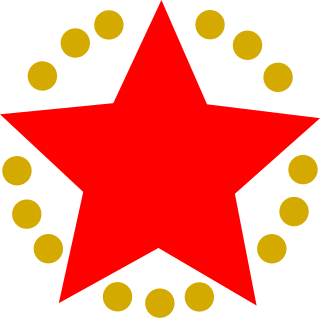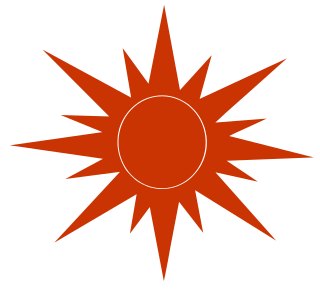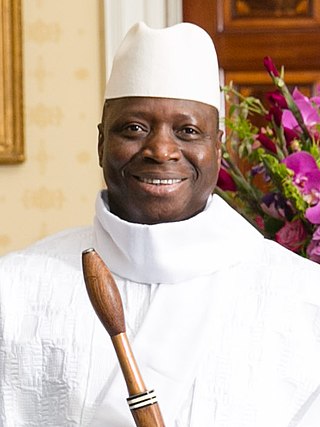| Constituency | Member returned (2017) [2] [3] | Notes |
|---|
| Bakau | | Assan Touray (UDP) | Seat gain, incumbent Kalifa Jammeh stood down |
| Banjul Central | | Muhammed Ndow (PPP) | Seat gain, defeated incumbent Abdoulie Saine |
| Banjul North | | Ousman Silla (PDOIS) | Seat gain, incumbent Alhagi Sillah stood down |
| Banjul South | | Fatoumatta Njai (PPP) | Seat gain, defeated incumbent Baboucarr S. Nyang |
| Basse | | Muhammed Magassy (Ind) | Seat held |
| Brikama North | | Alagie S. Darboe (UDP) | Seat gain, new constituency |
|
| Brikama South | | Lamin J. Sanneh (UDP) | Seat gain, new constituency |
| Bundungka Kunda | | Bakary Njie (UDP) | Seat gain, new constituency |
| Busumbala | | Saikouba Jarju (UDP) | Seat gain, new constituency |
| Central Baddibu | | Sulayman Saho (UDP) | Seat gain, incumbent Samba Cham stood down |
| Foni Bintang Karanai | | Ebrima Solo Jammeh (APRC) | Seat held |
| Foni Bondali | | Kaddy Camara (APRC) | Seat held, incumbent Matarr Kujabi stood down |
| Foni Brefet | | Sunkary Badjie (APRC) | Seat held, incumbent Bintanding Jarju stood down |
| Foni Jarrol | | Alhagie Sankung Jammeh (APRC) | Seat held |
| Foni Kansala | | Musa Amul Nyassi (APRC) | Seat held, incumbent Buba A. Bojang stood down |
| Illiassa | | Dembo K. M. Camara (UDP) | Seat gain, incumbent Lamin Kebba Jammeh stood down |
| Jamara | | Alhagie H. Sowe (GDC) | Seat gain, defeated incumbent Habiboulie K. Jawo |
| Janjanbureh | | Momodou Ceesay (UDP) | Seat gain, defeated incumbent Ebrima M. Sarjo |
| Jarra Central | | Kebba Jallow (GDC) | Seat gain, incumbent Lamin Hydara stood down |
| Jarra East | | Sainey Touray (UDP) | Seat gain, incumbent Bafaye Saidy Khan stood down |
| Jarra West | | Kajali Fofana (UDP) | Seat gain, incumbent Njie Darboe stood down |
| Jeshwang | | Alhagie Drammeh (UDP) | Seat gain, incumbent Haddy Nyang-Jagne stood down |
| Jokadu | | Salifu Jawo (GDC) | Seat gain, incumbent Amadou O. Khan stood down |
| Kantora | | Billay G. Tunkara (UDP) | Seat gain, incumbent Saikou Susso stood down |
| Kiang Central | | Bakary Camara (UDP) | Seat gain, incumbent Baboucarr S. Fadera stood down |
| Kiang East | | Yaya Gassama (UDP) | Seat gain, incumbent Bora B. Mass stood down |
| Kiang West | | Fakebba N. L. Colley (UDP) | Seat gain, incumbent Menata Njie stood down |
| Kombo East | | Lamin N. F. Conta (UDP) | Seat gain, seat vacant |
| Kombo South | | Kebba K. Barrow (UDP) | Seat gain, incumbent Abdou Colley stood down, elected Majority Leader [4] |
| Latrikunda Sabijie | | Saikou Marong (UDP) | Seat gain, new constituency |
| Lower Badibu | | Alhagie Jawara (UDP) | Seat gain, incumbent Ablie Suku Singhateh stood down |
| Lower Fulladu West | | Alhagie Darboe (UDP) | Seat gain, defeated incumbent Omar Tobb |
| Lower Niumi | | Matarr Jeng (UDP) | Seat gain, incumbent Sheriff M. Hydara stood down |
| Lower Saloum | | Sainey Jawara (NRP) | Seat held, incumbent Modou Bamba Gaye stood down |
| Naimina Dankuna | | Samba Jallow (NRP) | Seat held, re-elected Minority Leader [4] |
| Naimina East | | Omar Ceesay (GDC) | Seat gain, incumbent Foday A. Jallow stood down |
| Niamina West | | Demba Sowe (GDC) | Seat gain, incumbent Lamin Jadama stood down |
| Niani | | Alhagie F. B. Sillah (UDP) | Seat gain, seat vacant |
| Nianija | | Amadou Camara (NRP) | Seat gain, defeated incumbent Habsana Jallow |
| Old Yundum | | Abdoulie Ceesay (UDP) | Seat gain, new constituency |
| Sabach Sanjal | | Ousman Toray (NRP) | Seat gain, incumbent Ousman Bah stood down |
| Sami | | Alfusainey Ceesay (UDP) | Seat gain, incumbent Ousman Njie stood down |
| Sandu | | Muhammed Mahanera (UDP) | Seat gain, incumbent Abdoulie K. Jawla stood down |
| Sanneh Menterreng | | Baba Galleh Jallow (UDP) | Seat gain, new constituency |
| Serekunda Central | | Halifa Sallah (PDOIS) | Seat gain, new constituency |
| Serekunda West | | Madi Ceesay (UDP) | Seat gain, incumbent Sulayman Joof stood down |
| Tallinding Kujng | | Fatou K. Jawara (UDP) | Seat gain, new constituency |
| Tumana | | Foday N. M. Drammeh (UDP) | Seat gain, incumbent Netty Baldeh stood down |
| Upper Fulladu West | | Dawda Kawsu Jawara (UDP) | Seat gain, incumbent Ahmad Malick Njie stood down |
| Upper Niumi | | Omar Darboe (UDP) | Seat gain, defeated incumbent Cherno O. Jallow |
| Upper Saloum | | Alhagie Mbow (NRP) | Seat gain, defeated incumbent Sainey Mbye |
| Wuli East | | Suwaibou Touray (PDOIS) | Seat gain, incumbent Saidou V. Sabally stood down |
| Wuli West | | Sidia Jatta (PDOIS) | Seat gain, incumbent Kassuma Jallow stood down |
| Nominated | | Mariam Jack-Denton (UDP) | Speaker - Elected by MPs (Unopposed) |
| Nominated | | Kumba Jaiteh (UDP) | |
| Nominated | | Ndey Yassin Secka-Sallah (Civil society) | |
| Nominated | | Momodou L. K. Sanneh (UDP) | Deputy Speaker - Elected by MPs (Unopposed) |
| Nominated | | Majanko Samusa (NCP) | |












